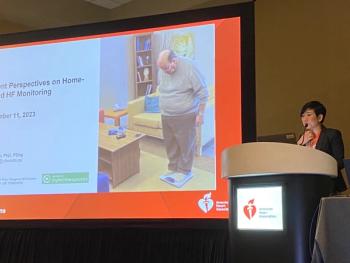
Researchers Haven’t Been Napping: Studies of Sleep-related Apps Have Soared
A bibliometric analysis shows the annual number of published studies has increased from a handful to more than 60. Most studied are the sleep tracking apps.
The world is awash in health-related apps that dangle the promise of dealing with woes ranging from obesity to concentration to irritable bowel syndrome. Apps related to sleep are among the most common.
So it is not surprising that as the number of sleep-related apps have increased, so have the number of studies investigating them. Last week, a team of Chinese researchers reported their
Their results show a steep increase in quantity but a dearth of quality: none of the articles were published in The New England Journal of Medicine, The Lancet, JAMA or BMJ. They also found reached that only 12 of the sleep-related apps had reached “maturity level IV,” which means that they were available to be downloaded.
Mingfu Nuo and colleagues conducted their studying by searching eight database of medical, scientific and psychological research, including PubMed, EMBASE and PsycInfo. Their first winnowing left them with 4,436 articles to consider that were published from Jan. 1, 2010, through Dec. 31, 2021. They applied inclusion criteria — the studies had to be of “mHealth technology” that tracks, diagnoses or intervenes in sleep disorders — and exclusion criteria — no reviews, letters or commentaries; the studies had to be in English; and digital health aspect couldn’t be just a minor mention. That left them with 313 articles to consider.
Among the most obvious findings was that the number of studies has increased, from just three in 2010 to 66 in 2021. They identified the studies had 1,399 authors and were published in 182 different journals and conference and meeting reports.
The studies involved 368 sleep-related apps, 233 of them new and 135 existing. The majority (56.3%) of the apps studied were sleep tracking apps, followed by intervention apps (32.3%) and diagnosing apps (11.45%).
The vast majority (86.5%) of the apps that were clearly identified as targeting sleep disorders were designed to help with either insomnia or sleep-related breathing.
Nuo and colleagues found that 178 of the 313 studies in their review were funded by grants from 319 different organizations. The National Institutes of Health had the most (47) grants.
The “conversion rate” of only 12 of the apps being available to download in the “real-world” outside of research context concerned Nuo and colleagues. They said artificial intelligence should be used to address the shortcomings of staged sleep trackers and researchers should focus on other sleep disorders.
“Simultaneously,” wrote Nuo and colleagues, “research on other attributes of the apps, such as usability, needs to be strengthened. Efforts should be made to improve the research conversion rate of mHealth apps to encourage widespread adoption and use in the real world.”
Newsletter
Get the latest industry news, event updates, and more from Managed healthcare Executive.
























